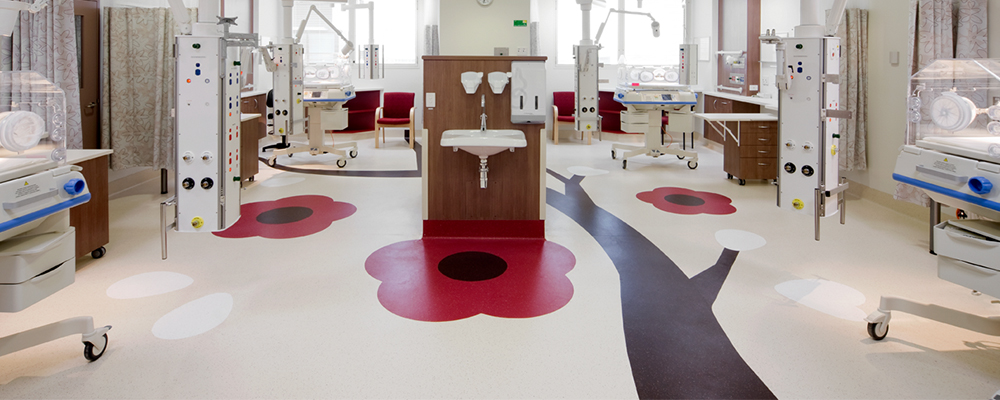
In Healthcare
PVC has made it possible for patients and healthcare professionals to access a wide range of medical applications with optimal technical performance, safety and comfort in use.
PVC products provide benefits in many areas of our hospitals and healthcare systems, for instance:
- Vinyl covered hospital floors and walls reduce cross infection because the flooring lengths are fused together seamlessly using heat.
- PVC blood bags mean blood can be stored for longer periods than blood stored in glass containers.
- Blister packs for tablets prevent deterioration, assist dose control and allow visual identification.
- Transfusion and intravenous tubing uses PVC for its transparency and flexibility.
- Vinyl surgical gloves stretch to multiple sizes and provide a barrier against cross infection.
The properties of PVC that make it particularly suitable and effective in medical applications include kink resistance, bonding to rigid components without the need for adhesives, ease of sterilization using various processes, high clarity, flexible and resistant, hermetic sealing properties and ease of processing.
The key advantages PVC has over other materials for medical devices are:
- Sterilization – retains its product integrity under hot and cold temperatures.
- Transparency – allows visual monitoring of medical procedures.
- Flexibility – reduces kinking in tubing and minimises interruptions to fluid flow.
- Strength – increases the durability and reliability of key products e.g. surgical gloves.
PVC is the material of choice in many medical applications, not only because of its performance characteristics, but because it is inexpensive. This efficiency means hospitals are able to use quality disposable items that help reduce infection rates.
Recycling PVC medical waste
PVC medical product waste such as intravenous fluid bags, oxygen masks and tubing, can be recycled under the Vinyl Council's PVC Recycling in Hospitals initiative. Learn more and find out how to join this initiative.






